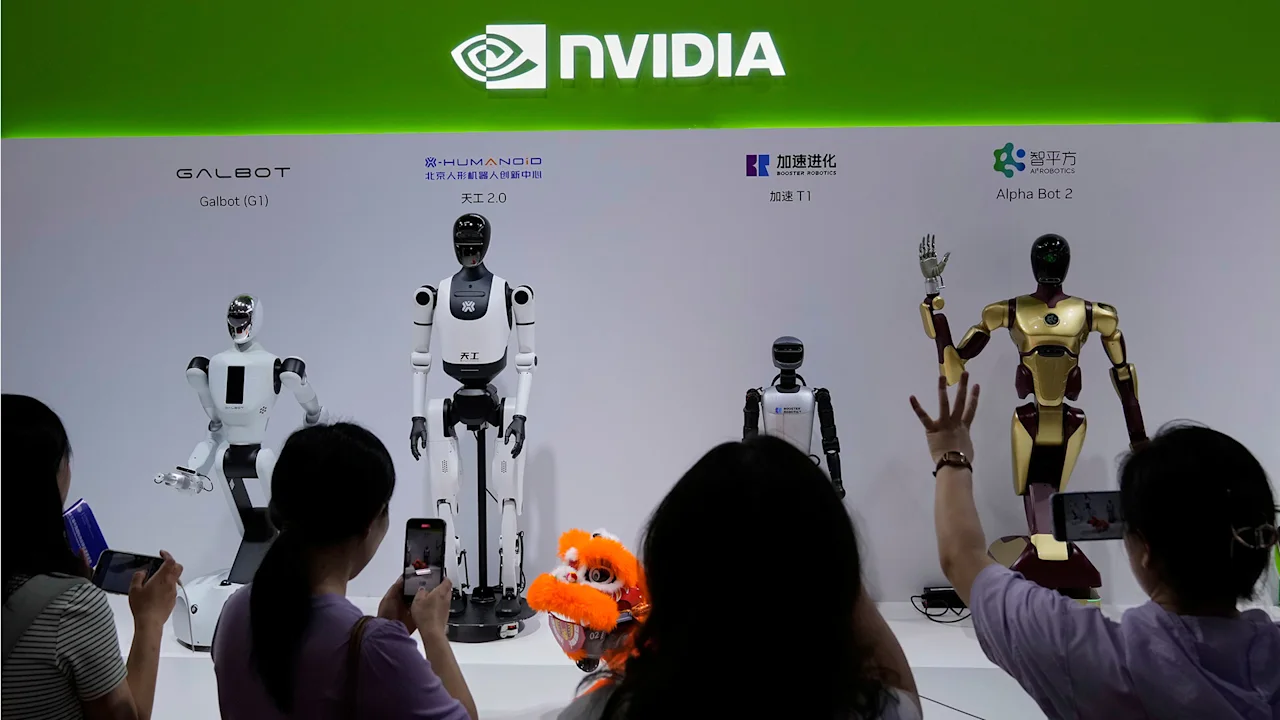Nvidia's Earnings Report: A Reflection on the AI Boom
Author: Michael Liedtke, AP Technology Writer

As Nvidia prepares to unveil its quarterly earnings report, investors and analysts alike are keenly focused on what the results will indicate about the current state and future of the artificial intelligence (AI) sector. The technology exploration surrounding AI has led to speculation and rapid market fluctuations, and these financial outcomes may serve as a critical indicator of whether the perceived AI boom is genuinely sustainable or merely a transient bubble.
Nvidia has recently made headlines by becoming the first publicly traded company to surpass a staggering market value of $4 trillion. This unprecedented valuation, coupled with a 13% increase in stock price since that milestone, has added around $500 billion in shareholder wealth. However, as excitement builds over the upcoming financial results expected this afternoon, the question emerges: is this growth indicative of a solid technological advancement, or are we witnessing an echo of the late 1990s dot-com bubble?

Nvidia will release its quarterly earnings report, which is anticipated to provide critical insights into the AI boom.
The excitement around AI surged significantly following the release of popular AI platforms like OpenAI’s ChatGPT in late 2022, which sparked a wave of enthusiasm reminiscent of the iPhone launch in 2007. During this period, Nvidia's market value shot up from around $400 billion to unprecedented heights. The overall stock market has also benefited remarkably from this AI frenzy, as indicated by the S&P 500's impressive 68% increase since the end of 2022, much of which can be attributed to the excitement surrounding AI-driven technologies.
Despite this optimism, concerns are surfacing regarding the long-term viability of AI as a market force. The technological landscape's transformation raises questions about potential risks associated with over-anticipation of AI capabilities. Notably, a recent MIT report revealed that an alarming 95% of AI pilot projects fail to yield actionable outcomes, adding fuel to the argument that investor confidence might lack a solid foundation.
Furthermore, remarks from OpenAI CEO Sam Altman concerning a possible AI bubble have reverberated throughout the investor community. Tech stock valuations, particularly those of AI-powered companies, appear inflated; for instance, Nvidia's stock currently trades at around 40 times its future earnings—twice the ratio generally considered reasonable. Rival companies like Microsoft have market values close to $4 trillion, amplifying fears that these stocks may not accurately reflect their inherent value.

Investors express mixed concerns over potential AI bubble as major players like Microsoft and Nvidia dominate the market.
Analysts' expectations for Nvidia's upcoming financial results are cautious yet optimistic, predicting a robust earnings growth of 49% from the same timeframe last year, potentially resulting in $1.01 per share. Revenue estimates are anticipated to rise by 53% to approximately $46 billion, evidencing the relentless demand for AI technical infrastructure and the resulting financial windfall for Nvidia. Major tech giants such as Microsoft, Amazon, Alphabet, and Meta have collectively earmarked over $325 billion towards AI investments this year alone, positioning Nvidia at the epicenter of this financial surge.
However, it is essential to note that Nvidia's growth trajectory may be gradually declining. If analysts' forecasts prove accurate, Nvidia is poised for a significant decrease in revenue growth—down from an extraordinary 122% year-over-year increase from the same period in the previous year. Additionally, trade restrictions imposed by the US government, particularly under former President Trump, have also posed considerable challenges for Nvidia. The ban on AI chip sales to China resulted in a staggering $4.5 billion drop in earnings last quarter and is expected to impact revenues substantially.
Despite these uncertainties, it appears that the future of Nvidia—and, by extension, the AI market—remains to be scrutinized by both optimistic and skeptical investors. The anticipated discussion surrounding Nvidia's financial report will likely delve into these facets as CEO Jensen Huang speaks with analysts, balancing the explosive demands for AI technology against the backdrop of economic and geopolitical challenges.

The AI landscape is evolving with new tools and platforms, altering the dynamics of technology investment and engagement.
In summation, while Nvidia's earnings report is poised to shine a spotlight on the AI boom, it also represents a fundamental junction within the broader tech ecosystem. Investors must navigate complex realities, weighing the excitement driven by AI advancements against the sobering prospects of potential market corrections and the critical need for sustainable growth.